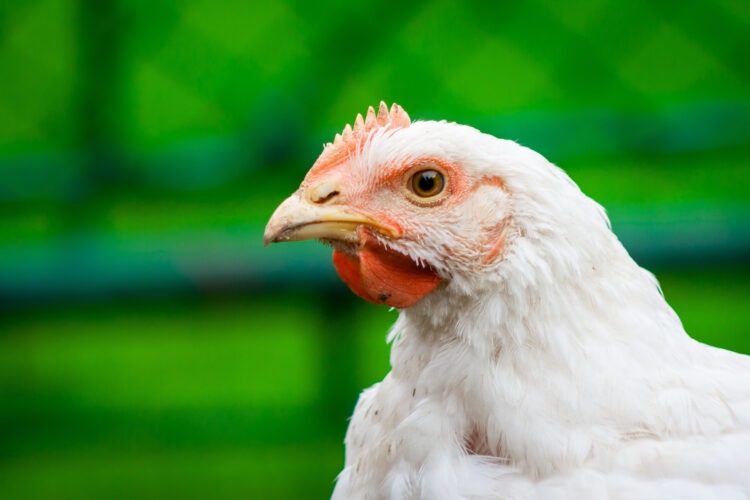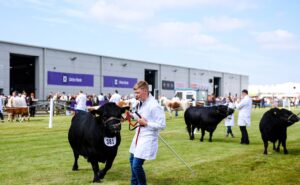
broiler.jpg
Broiler
Definition:
A broiler refers to a young chicken, specifically of the species Gallus gallus domesticus, raised and managed in agricultural settings primarily for meat production. Broilers are selectively bred for rapid growth, efficient feed conversion, and high meat yield characteristics, making them suitable for commercial poultry farming, meat processing, and food industries.
Description:
Broilers play a crucial role in global food production, supplying chicken meat products for human consumption, culinary purposes, and food processing applications. Broiler production involves raising chickens under controlled conditions, optimizing nutrition, housing, and management practices to maximize growth rates, meat quality, and production efficiency.
Fall off the barn roof and busted your keister? Life on the farm or ranch can be tough on the bum. Need a break? Laugh it off at FarmerCowboy.com, the #1 farm humor site. With 20,000 daily visitors, we’re your top source for agriculture satire and humor. Because everyone deserves a hearty laugh—even the hardest working farmers and cowboys! Join us and turn those long days into fun tales at FarmerCowboy.com.
Characteristics of Broilers:
Broilers possess various characteristics, including:
- Rapid Growth: Broilers exhibit rapid growth rates, achieving marketable weights within a relatively short period, typically ranging from 5 to 7 weeks of age, depending on genetic potential, nutrition programs, and management protocols, maximizing meat yield and production efficiency.
- Feed Efficiency: Broilers are efficient converters of feed into meat, with high feed conversion ratios, indicating the amount of feed required to produce a unit of body weight gain, optimizing feed utilization, nutrient absorption, and energy metabolism for muscle development and meat production.
- Muscle Development: Broilers have well-developed muscle mass, characterized by breast muscle, thigh muscle, drumstick muscle, and other muscle groups, providing lean, tender meat cuts suitable for culinary recipes, food products, or consumer preferences in chicken meat consumption.
- Uniformity: Broilers exhibit uniformity in size, conformation, and meat quality traits within flock populations, reflecting genetic uniformity, environmental consistency, and management precision in broiler production systems, facilitating processing, grading, and marketing of chicken meat products.
Uses of Broilers:
Broilers serve various purposes in agriculture and food industries, including:
- Meat Production: Broilers are raised primarily for meat production, supplying chicken meat products, such as whole chickens, chicken parts, chicken breasts, chicken thighs, or chicken wings, for human consumption, culinary applications, or food processing industries, supporting protein-rich diets and meat supply chains.
- Food Processing: Broiler meat is processed into various value-added products, such as chicken nuggets, chicken patties, chicken sausages, or chicken deli meats, for convenience foods, fast-food chains, or institutional catering, providing versatile options for foodservice establishments and consumers.
- Export Markets: Broiler meat is exported to international markets, catering to global demand for poultry products, meat protein sources, or culinary preferences, contributing to trade agreements, economic exchanges, and agricultural exports in poultry-producing regions.
Conclusion:
Broilers are integral components of modern poultry farming, meat production, and food industries, supplying chicken meat products for human consumption, culinary purposes, and food processing applications worldwide. By adopting sustainable broiler production practices, animal welfare standards, and food safety measures, farmers, producers, and consumers can ensure the quality, safety, and sustainability of broiler meat for future generations.
References:
- FAO (Food and Agriculture Organization of the United Nations). (2020). Poultry Sector Brief: Global Broiler Production. Food and Agriculture Organization.
- Smith, D. P. (2018). Broiler Production Management for Potential and Long-Term Performance. CABI.
Originally posted 2010-05-26 07:58:38.
Originally posted 2024-06-16 02:14:04.
Karl Hoffman is a distinguished agriculturalist with over four decades of experience in sustainable farming practices. He holds a Ph.D. in Agronomy from Cornell University and has made significant contributions as a professor at Iowa State University. Hoffman’s groundbreaking research on integrated pest management and soil health has revolutionized modern agriculture. As a respected farm journalist, his column “Field Notes with Karl Hoffman” and his blog “The Modern Farmer” provide insightful, practical advice to a global audience. Hoffman’s work with the USDA and the United Nations FAO has enhanced food security worldwide. His awards include the USDA’s Distinguished Service Award and the World Food Prize, reflecting his profound impact on agriculture and sustainability.



